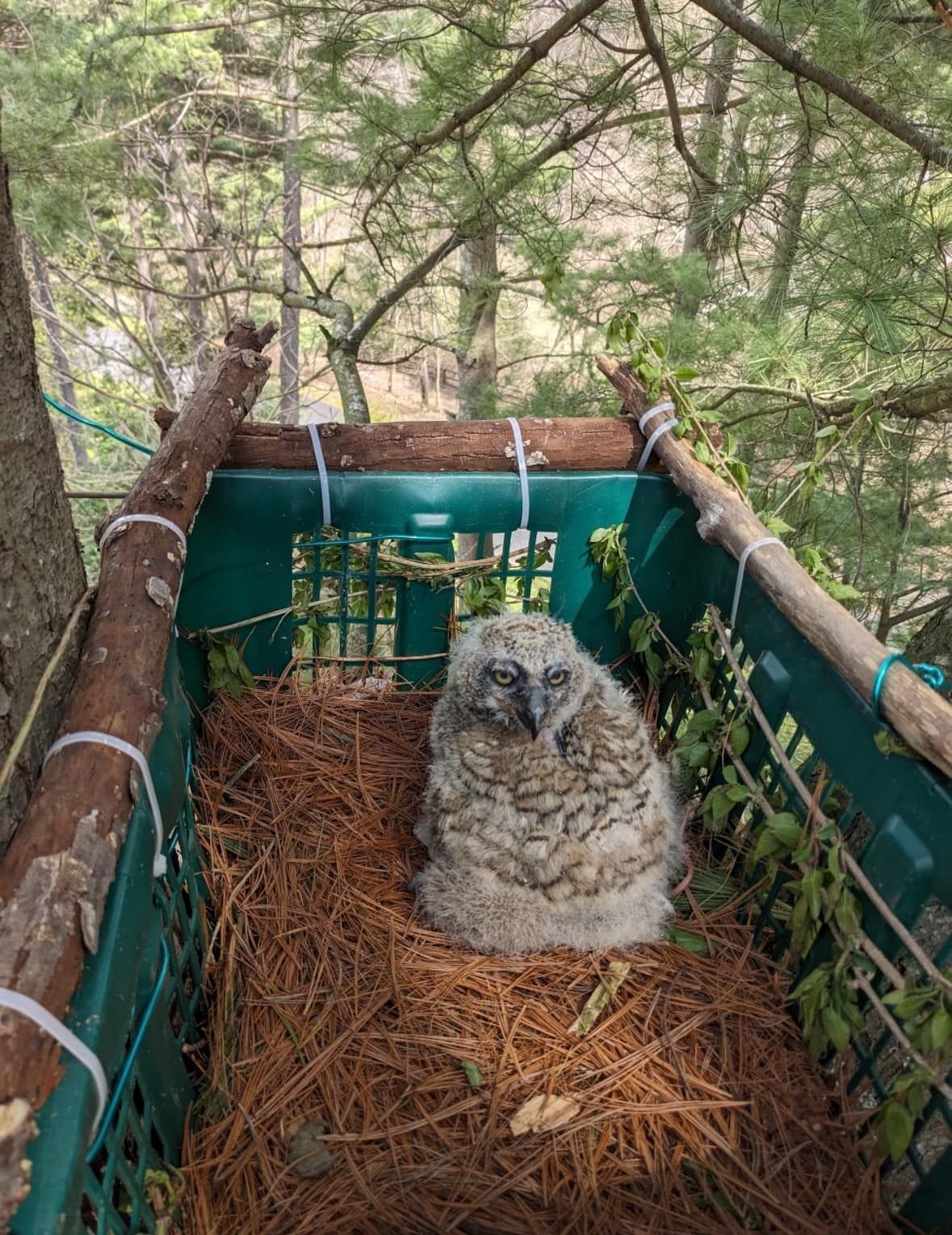
It’s the most wonderful (and busy) time of the raptor year…baby bird of prey season! Two species of owl babies are particularly common intakes at Owl Moon at the moment—great-horned owls and barred owls. Great-horned owls typically start breeding in late winter to early spring, while barred owls prefer to mate from spring to early summer. During this time, birds prepare for parenthood by selecting the perfect nesting spots and diligently tending their eggs until they hatch. After hatching, the parents go into overdrive feeding and protecting the nestlings and teaching essential skills for survival. As these baby birds grow, they undergo remarkable transformations that enable them to take flight and explore their surroundings. Sometimes they’re a little too eager to leave the nest.
Two such early explorers were barred owl fledglings who decided to take their first flights much earlier than anticipated and ended up in Owl Moon’s care. Our team ensured the continued safety of these adventurous flyers by carefully renesting them after providing care. The owlets will continue growing up under the watchful eyes of their parents.A great horned owl fledgling was also successfully renested. When Owl Moon rescuer Malia arrived at the scene and detected no injuries to the owlet, she wasted no time in coordinating with Comprehensive Tree Care Inc. to renest using one of our laundry basket nests. Thanks to her swift and thorough assessment, this healthy young owl returned to his family—the best place for a growing raptor.
Remember, if you come across a baby bird, reach out before taking action. We can assess the nestling for injuries and reunite them with their nests or place them with foster families promptly. If the nest is damaged, we can provide replacements. Great-horned owls especially gravitate towards pre-made nests, so our work becomes a seamless part of their natural patterns. Your donations make these efforts possible!
GHOW Renest photo provided by Mike Fried & Will Rasmussen
